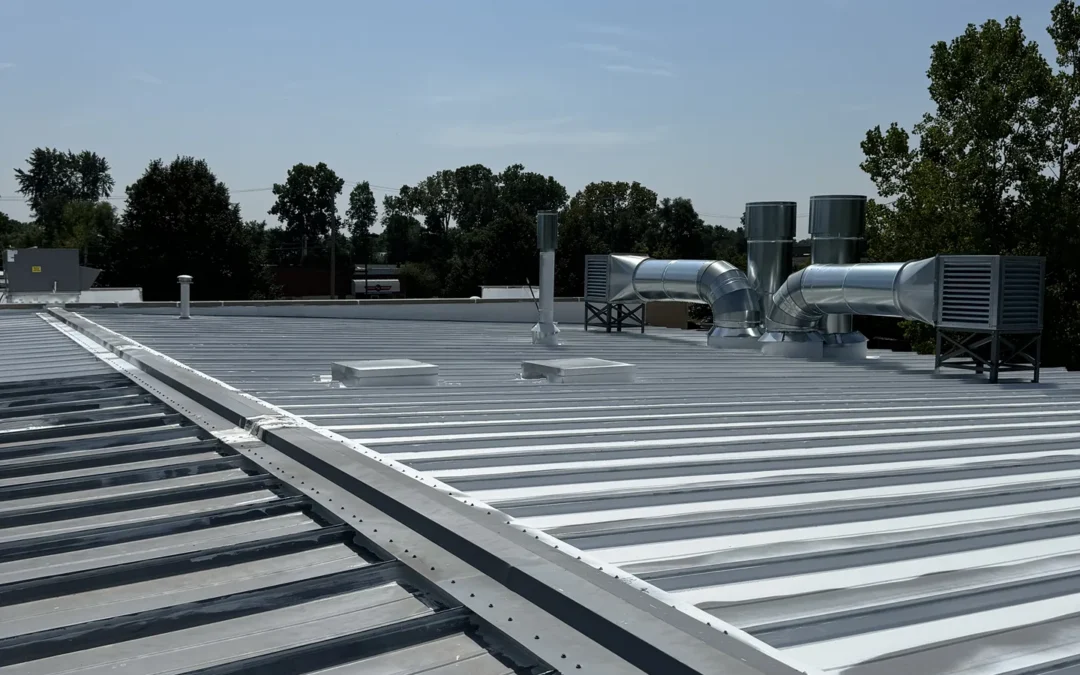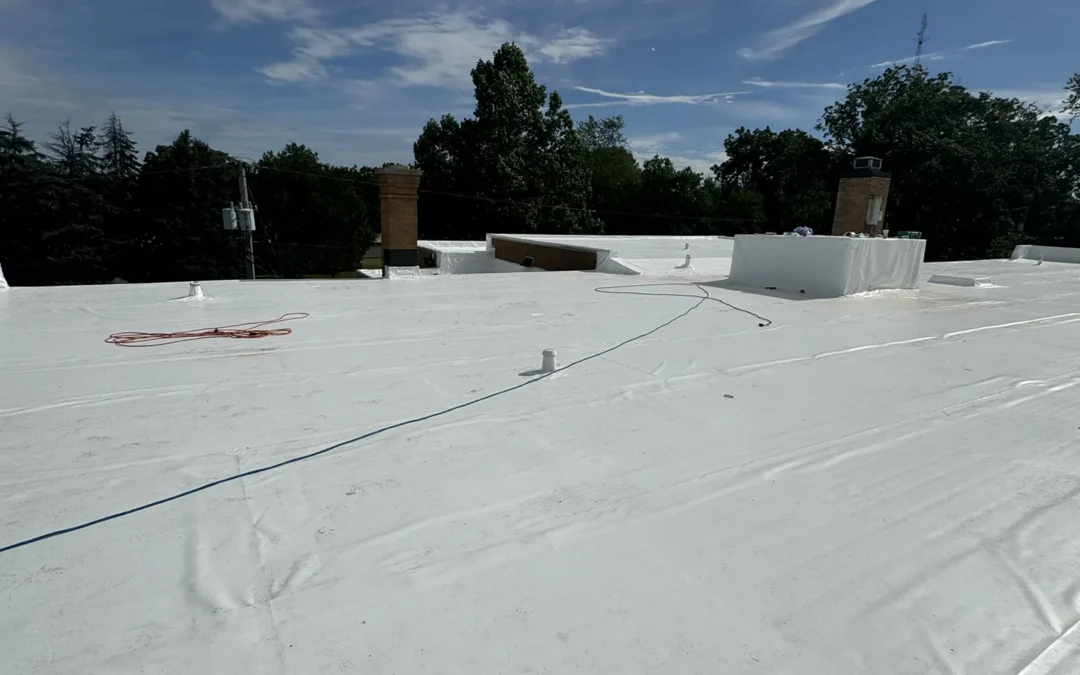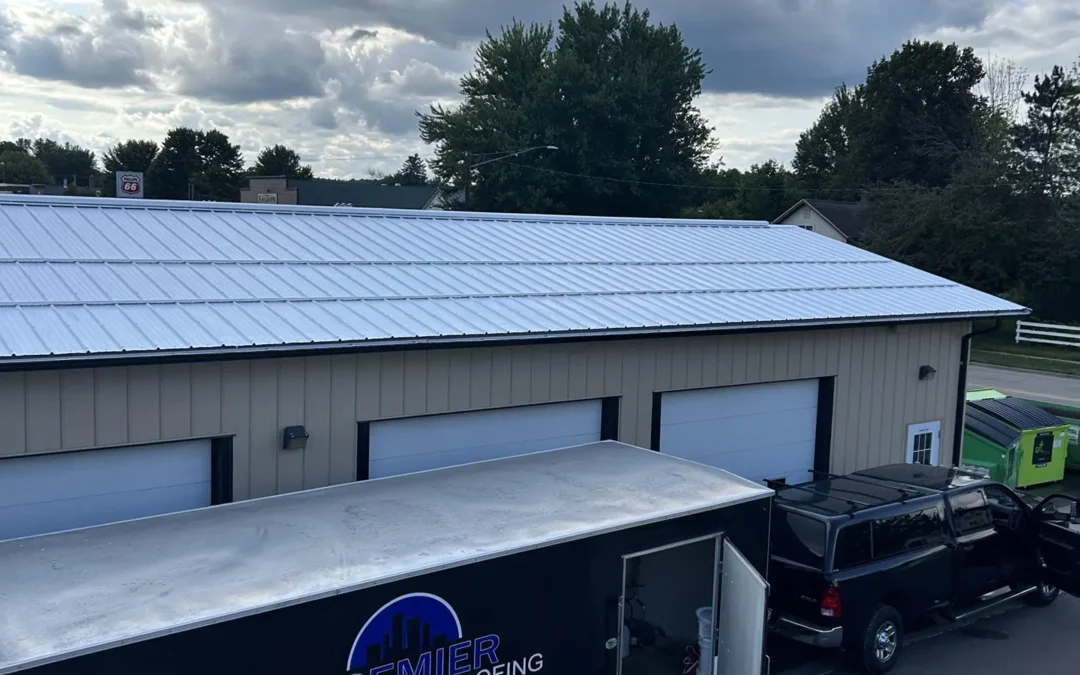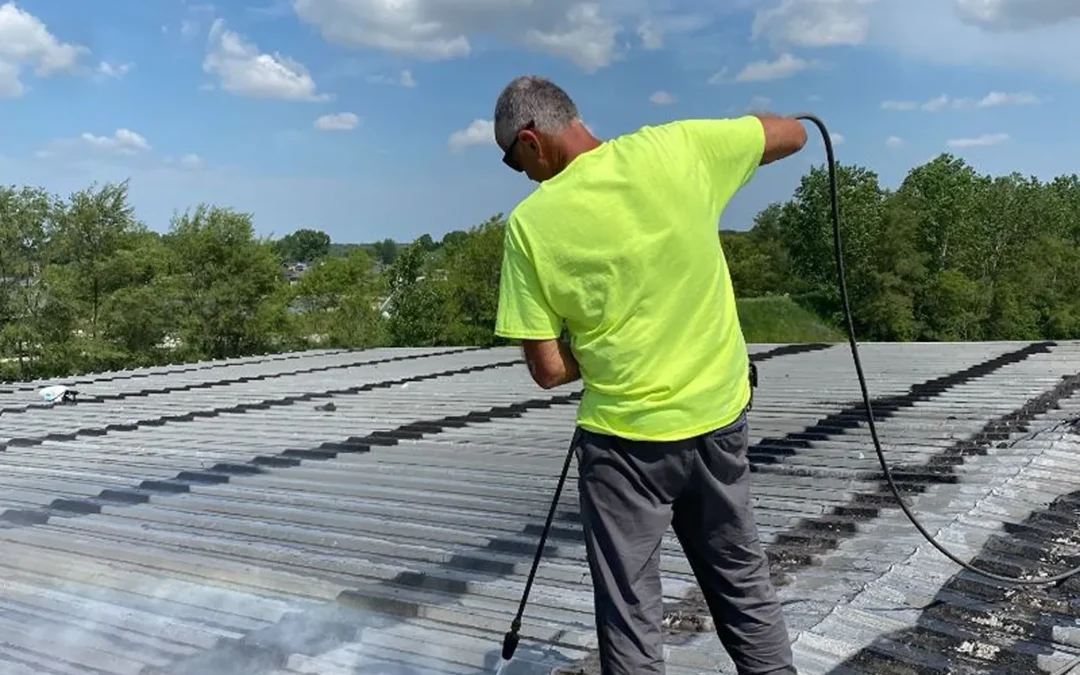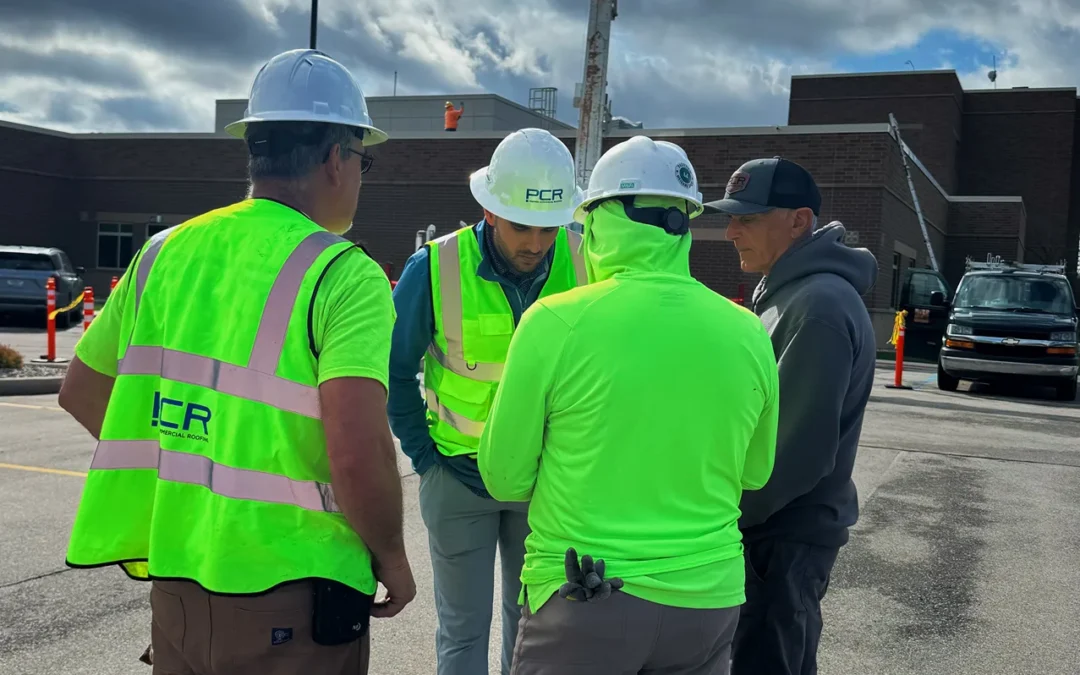
Commercial roofs are available in various shapes, sizes, and materials. Each commercial roofing type comes with its share of pros and cons. Whether you are looking for a reliable roof for your new building or planning to replace your worn-out roofing system, you must compare the best commercial roofs to get value for your money. Let’s discuss the common commercial roofing types.
Metal Roofing
Metal roofing is popular among business owners thanks to its 40 to 60-year lifespan, finished look, affordability, and variety. With metal roofing, you can choose between different metal materials like:
- Lead
- Tin
- Stainless steel
- Aluminum
- Stone-coated steel
- Silicon-coated steel
- Corrugated galvanized steel
Some metal roofing systems also have integrated snow and solar removal systems. One downside to metal roofing is that it is vulnerable to corrosion due to exposure to moisture, weather elements, and pollution. Luckily, you can install protective surface layers to protect your metal roofing system from corrosion.
Thermoset EPDM Membrane
EPDM membrane or Ethylene Propylene Diene Terpolymer is a synthetic and long-lasting rubber roofing membrane. EPDM roof systems are prized by many business owners thanks to their versatility, strong resistance, easy installation, and minimal maintenance. Moreover, these single-ply membranes also offer strong resistance to alcohol, acids, and other solvents. EPDM membranes are available in white and black rolls. However, falling debris or people walking on the roof can easily puncture this roofing system.
Green Roof
Green roofing systems are undoubtedly one of the most flexible commercial roofing types in the market today. These roofs are not only sustainable, but they also offer superior protection against the elements. Additionally, green roofing systems will enhance energy efficiency in your commercial building. They are also environmentally friendly and beautiful. The primary concern with green roofs is that they require routine maintenance.

Thermoplastic Roof Membrane
Thermoplastic roof membranes such as polyvinyl chloride (PVC) and thermoplastic polyolefin (TPO) are also popular options due to their strong resistance to the elements and punctures. These roofing systems also offer excellent resistance against chemicals, UV light, and bacterial growth. As a result, thermoplastic roof membranes are ideal for businesses that emit oil or fats, such as restaurants. Thermoplastic roof membranes are also tolerant to fire, wind, and high temperatures. However, thermoplastic membranes can deteriorate if exposed to falling debris and high foot traffic.
Built-Up Roofing Membrane
Built-up roofing membrane or BUR is also popular due to its 20 years plus lifespan, UV resistance, and flexibility. BUR is also easy to maintain and inexpensive. Since it’s a seamless roofing system, it can handle high foot traffic.
The main concern with BUR roofing systems is that they are less durable than most commercial roofing types.
Shingles
Although shingles are commonly used on residential buildings, some business owners also install this roofing material in their commercial buildings. Usually, shingles work well with facilities that have steep roof lines. The good thing with shingles is that they are available in various materials such as ceramic, slate, architectural, plastic, asphalt, and more. Shingles might be the perfect option if you are in the market for an affordable, versatile, and easy-to-install roofing material.
However, you must be ready to deal with mildew and moss, especially if your commercial building is surrounded by trees or in any other shaded area.
If you need help with your commercial roof be sure to contact our expert commercial roofing contractors in Fort Wayne, IN. We also offer roofing services in South Bend, IN.
What is the Lifespan of a Commercial Roof?

The lifespan of your commercial roof varies depending on the material used, maintenance, weather, and the installation process. On average, most commercial roofing systems last anywhere from 10 to 40 years. Here is the average lifespan for common commercial roofing systems:
- Metal roofing systems – 30 to 45 years
- Thermoset EPDM membrane – 20 to 35 years
- Thermoplastic PVC and TPO roof membranes – 20 to 30 years
- Green roofs – 40 to 60 years
- Built-up roofing membrane – 15 to 30 years
Choosing the most suitable roofing material for your commercial needs can enhance the lifespan of your roof. Also, routine maintenance can improve the efficiency and longevity of your commercial roof. Schedule your commercial roof maintenance today to catch common roofing issues early on and avoid costly repairs or replacements.
What Types of Roofs Do Commercial Buildings Have?
Commercial buildings have different types of roofs depending on the needs and preferences of each business owner. To choose the right roof, commercial building owners must consider various factors, including:
- Budget
- Location
- Immediate surroundings
- Climate
- Future plans
- Environmental impact
- Roof slope
- Energy efficiency
- Material weight
- Installation and maintenance
With that in mind, most commercial buildings have thermoset EPDM membranes, green roofs, built-up roofing membranes, metal roofing systems, thermoplastic roof membranes, and more.
What is a Commercial Roofing System?
Like residential roofing systems, commercial roofing systems protect your building from the elements and improve energy efficiency. However, commercial roofing systems are quite different from residential roofing systems when it comes to technology, installation, and materials. First, most commercial roofing systems are made up of metal, single-ply membranes, modified bitumen, built-up roofing systems, and more. On the other hand, most residential roofing systems are made up of concrete tiles or asphalt shingles.
Commercial roofing systems also have the edge over residential roofing systems when it comes to technology. Over the years, manufacturers have embraced technology to provide reliable commercial roofing types resistant to heat, wind, temperature, and adverse weather conditions.






